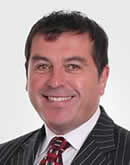In this blog appearing in the Catholic Herald, written by a former editor of the paper, and entitled "There’s no excuse for clerical child abuse: but it needs to be recognised that the sexual abuse of minors is more common in secular society", mention is made of how, when the Pope visited the USA, "One of his purposes in making the visit, the Pope said, was that he wished to recognise the reality of clerical child abuse". Similar noises were made when the Pope visited the UK last year.
Following the visit, the Catholic Church in England engaged in discussion with various child abuse survivor groups namely NAPAC, MACSAS, One in Four, and the Lantern Project. The approach of the church, inevitably because of its modus operandi, was somewhat theological, and based upon principles rather than practicalities.
The approach of the survivor groups was, thankfully, that any conciliatory process used to help survivors should not just cherry pick different parts of the process, but be all encompassing, and complete, to included, amongst other things, provision for financial compensation. Not surprisingly the process stumbled, and became tense at this point.
It is all well and good to talk about feelings of peace, spiritual tranquility, and so on, but when money appears on the horizon, then nerves, and compromising the position of insurers can come into the picture.
One only has to read "Abuse victims accuse Catholic church of using talks as a smokescreen"to see how difficult the talks became.
The angle being taken currently is a "Truth and Reconciliation" type of model used in South Africa. If I remember rightly, this did not have any provision for awarding compensation, which is vital to redress the lifelong harm caused by abuse in childhood, which often causes lifelong inability to work, amongst other devastating features.
The fundamental point of the conciliatory attitude to compensation with a no fault system similar to the Irish Redress Board scheme, was that the peaceful and conciliatory attitude of the church, with its background of Nolan Committee recommendations, contrasted sharply to the aggressive, conflicting attitude of the lawyers employed by the Catholic Church to contest litigation.
One only has to read the judgement in the recent case of JGE, where the Catholic Church challenged the principle that the Church is liable for the acts and defaults of any of its priests, in an effort to escape liability on a legal technicality, to see the lengths to which the church litigation machine will go in order to try and get out of paying anything. One wonders whether the Church's Lawyers are very much out of step with the principles being encouraged by Catholic hierarchy. The two definitely seem to be pointing in different directions. There are many other cases that one can refer to which are in a similar vein.
Whether or not abuse in childhood is just as common amongst the general population as priests ignores the fact that because priests are in a position of ultimate power, and trust, then any transgression within that type of relationship makes the offence much much worse, and a betrayal to children.

No comments:
Post a Comment